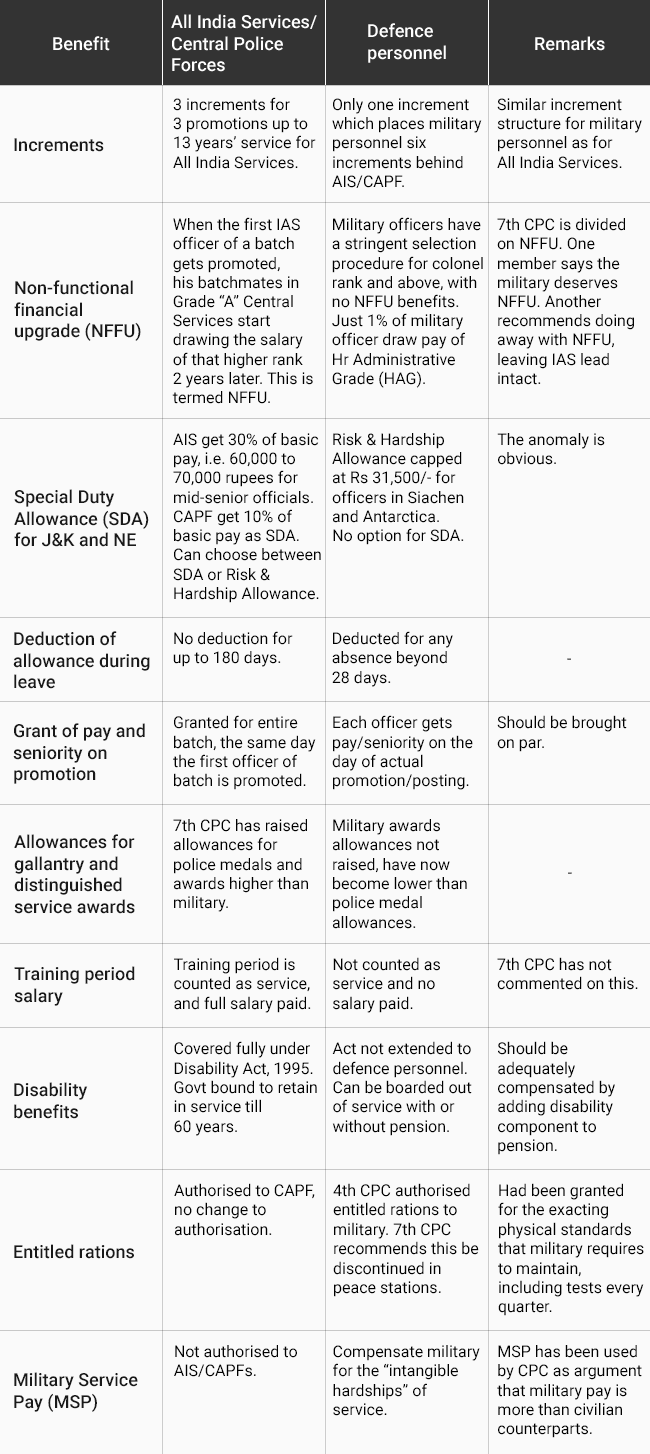To begin with, in 1947, this country inherited amongst other things a standing Army, Navy and Air Force from the British. With the British gone and with no territorial or hegemonic ambitions, it was felt that what we had was more than sufficient to assist at best in restoring some internal disturbances or helping out in a natural calamity. A rude awakening came within three months of Independence with the outbreak of the war in J&K. Two long years of bitter fighting brought home a few lessons; then the next setback of 1962 rattled the establishment. In all these years, despite the setbacks, the pre-eminence of the military as seen under British times was whittled away as a factor of civilian control, implying political control restricted to strategic thought and policy on one hand, and provisioning of necessary wherewithal on the other hand. The military was to conduct its own affairs in respect of tactical handling and day-to-day functioning within laid-down parameters. Somewhere down the line, this equation has got convoluted and everything and anything that the military does has been strait jacketed under "Bureaucratic Control". The takeover is so complete that a recent headline in a leading daily screamed, "Babus to get Bonanza" thereby clubbing the armed forces of this country with the scores of file-pushers ensconced in their offices on a strict 9-5, five-day work-week routine. The 1965 Indo-Pak War and the spectacular victory in 1971, the successful completion of scores of tasks in aid to civil authority both at home and abroad, as also the stellar performance of our troops under the United Nations flag across the world prove how different we are from babus.
The second major cause for concern is the retiring age of armed forces personnel. Unlike any other government service, where a uniform age of 60 years has been fixed from the lowest to the highest rank, the armed forces' personnel retire from 37 years onwards and only 1% of the 1.3 million remain in service till the age of 60. The discerning reader will note the absence of comparison. Under these circumstances, when you equate pay scales and allowances across the board, toh gussa toh aayega.
The third and most important factor in the increased range of gussa is the quality of an unsettled life for self, family, children, dependent parents and siblings, property (if any) for protracted periods of time and distance under the ubiquitous phrase, "Exigencies of Service".
In most militaries across the world, a 15-20% enhancement in compensation is applicable over and above that of their civilian counterparts. Alas in our country, the 7th Pay Commission has recommended just the opposite. Though the chairman Justice AK Mathur had verbally recommended a 30% addition to military salaries, the figures put out both by the pay commission and now by the government speak quite differently. Once again, the aim seems to be to lower the status of the armed forces vis-a-vis other central government services.
This country and the powers that be in the last 70 years have not permitted an armed forces representative on the seven pay commissions that have been formed, - one of the reasons why anomalies of the 6th Pay Commission in respect of the military remain unresolved ten years on. Another reason for the gussa.
I could go on and on as the subjects that need direct technical deliberation by the armed forces themselves cover a vast canvas stretching from short service conditions and limited promotions to lateral absorption, disability, and file and many more. Suffice it to say the issues that have raised the hackles of the military towards the babu in the present instance have been summarised in the table below (scroll down to end of article).
The military has conveyed its disappointment in no uncertain terms when the three service chiefs met with government representatives. The Defence Ministry has also conveyed his dismay at the final acceptance. Here is hoping that deliberations will be called for, issues resolved and then the government order be issued to satisfy all stake-holders. As a last word, the need for expenditure for the safety and security of the country cannot be understated.
If that is an unproductive cost so be it. Sovereignty is non-negotiable.

(Col Anil Kaul, VrC is an alumni of the NDA, IMA DSSC & AWC. He served for over 32 years in the Armoured Corps. Decorated with the Vir Chakra for gallantry in combat, he is 80% disabled for life due to combat injuries.)
Disclaimer: The opinions expressed within this article are the personal opinions of the author. The facts and opinions appearing in the article do not reflect the views of NDTV and NDTV does not assume any responsibility or liability for the same.


